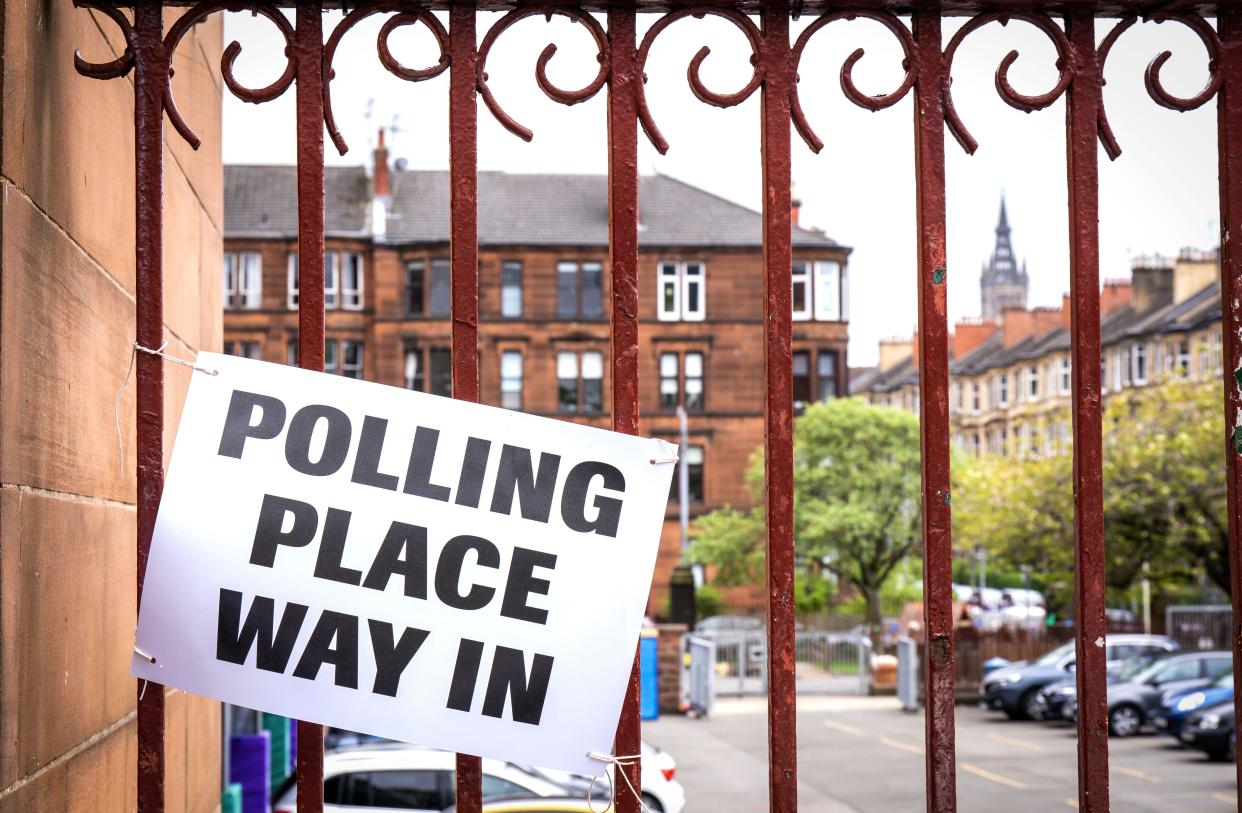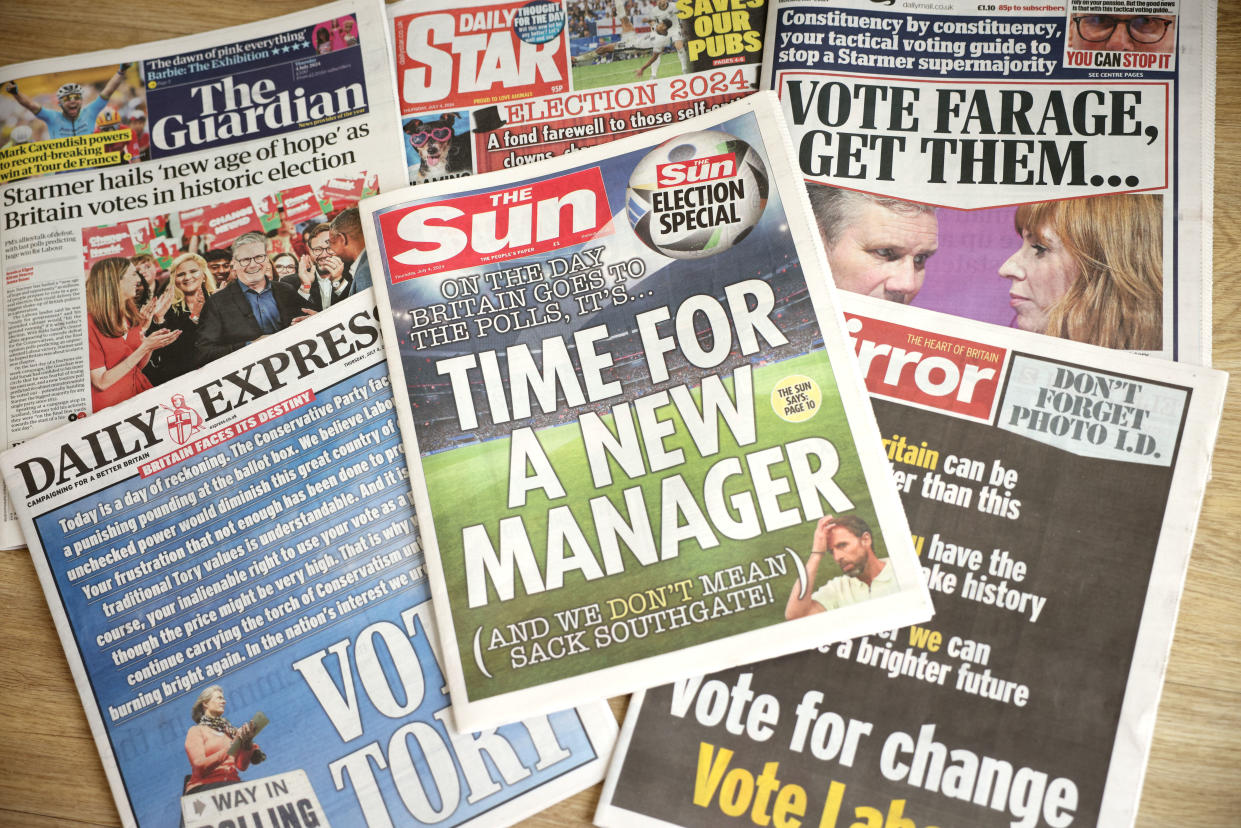What are the election day rules for opinion polls in the media?

Polls have opened for the biggest event of the UK’s political calendar, but just as campaigning heads into the final stretch, the media takes a back seat.
While voters have been treated to a news circus since Rishi Sunak stood in the rain to call the general election, strict rules put a dampener on what can and can’t be reported before the ballot boxes are sealed.
Candidates and their campaigners will still be out and about knocking on doors, doing their best to ‘get out the vote’.
But they won’t receive much coverage while polling stations remain open.
When do reporting restrictions come into play?
Restrictions are in place for the duration of the voting period, from 7am-10pm on polling day.
Rules are laid down in the Representation of the People Act, which sets out the rules in place until the “poll is closed”.
After 10pm, when polling stations close, normal service can resume.
What does it mean?
The act is supposed to limit discussion of how people are voting on the day, which might in turn affect how other people vote later.
The rules prohibit “any statement relating to the way in which voters have voted” and “any forecast as to the result of the election” which might be based on comments made after people have voted.
It doesn't stop all reporting though – coverage often features what's going on at the polling stations themselves, without going into detail of who's voting or for which parties.
What happens if you break the rules?
Anyone caught breaking the law risks up to six months in prison and an unlimited fine.

What about postal votes? Some people voted weeks ago, didn’t they?
The rules do technically apply to postal votes and some have been caught out.
In 2004, the Times published an opinion poll based on data from postal voters ahead of polling day in elections to the European parliament.
The Electoral Commission said this amounted to an exit poll and so shouldn’t have been reported before polls closed, but the Crown Prosecution Service declined to take further action.
Does everyone have to follow the rules?
Yes, and some media outlets have tougher rules as well.
Ofcom, which regulates broadcast media, says broadcasters have a duty to be impartial and the watchdog’s broadcasting director Cristina Nicolotti Squires threatened to “come down … like a ton of bricks” on TV and radio stations which continued to employ wannabe MPs during the election campaign.
The UK’s Broadcasting Code says broadcasters must give “due weight” to all parties, based on past or current electoral support.
So why can I still see lots of election campaign coverage on news sites?
Different rules apply to newspapers and magazines than broadcast outlets. They can still publish discussions of policy and political issues during election day and even endorse certain candidates or parties in their editorial sections - something broadcasters are forbidden from doing.
Physical newspapers are also printed the night before polling day, so will not be printing new information while polling stations are open.

So they can still publish details of opinion polls?
Yes. So long as they are based on information gathered before polling stations opened.
What about the political parties?
Political parties and their candidates can continue campaigning and canvassing throughout the day - although after 10pm it might not be of much use.
However, they cannot campaign within the perimeters of a polling station, including placing campaign materials there, such as posters or leaflets.
What is an exit poll?
Exit polls are surveys of voters leaving polling stations which try to make early predictions of the final result. They cannot be reported on while polls remain open.
Professor John Curtice, who often leads analysis of the exit polls, has said he often finds out what the exit poll is likely to say by around 2pm in the afternoon but tells as few people as possible to avoid prosecution.
It's 2pm which means that Sir John Curtice and @robfordmancs already know the result of the exit poll.
The rest of us have to wait until 10pm...
Because if Sir John told us he might end up in jail.... pic.twitter.com/A0K0jPcHtE— UK in a Changing Europe (@UKandEU) July 4, 2024
What do I do if I’m asked how I voted?
In short, whatever you want.
Some polling stations will have people outside asking people leaving how they voted.
It’s up to you whether or not you answer.


